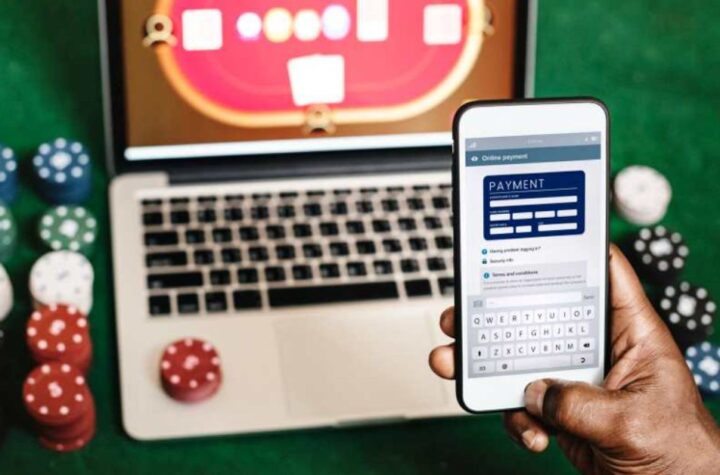
People from all communities like to gamble at online casinos. Research has been carried out into the gambling habits of the LGBTQ+ community. It makes for very interesting reading indeed.
The research has been carried out by Dr Reece Bush-Evans who is a member of the Gambling Research Group at Bournemouth University. Saturday June 8th saw him present at the local LGBTQ+ Bourne Free Festival where he discussed his findings.
Being a lecturer in psychology, it’s not surprising that his work looks at the social psychological aspects of people’s behaviour. Just why do members of the LGBTQ+ community find themselves attracted to gambling at casinos and other betting outlets?
An area he is currently focusing on is problem gambling. He is examining how the use of technology can detect, help, predict and intervene in behaviour that can cause serious problems.
While he admits that many people gamble “very safely,” a “significant minority” suffer gambling harm. This he says is particularly found among the LGBTQ+ community. That’s why he was keen to attend the Bourne Free festival. It gave him an opportunity to chat to people about how they gamble and how it has affected them.
You might wonder whether someone’s sexuality can influence their gambling. It’s not really a case of being LGBTQ+ meaning that you’re not able to get wins at an online casino. The frame of mind you are in affects your playing ability.
It’s never a good idea to head for a gambling site if already upset or your mind is simply on other worrying issues. Developing a problem with your gambling can only make matters worse according to a BritishGambler spokesperson, the site that lists gay-firendly gambling platforms.
Research carried out so far has indicated that gambling may be a coping mechanism for some LGBTQ+ people. Others may use betting at casinos as a way of masking their sexuality.
There are still many in the LGBTQ+ community who are yet to come out. This can put someone under tremendous pressure and feel isolated. One respondent commented: “If you’re in the closet and you just want to escape from reality” then gambling can be seen as “a route to escape” those feelings.
Dr Bush Evans agrees that some individuals gambled because of the stress put on them because of their sexuality. This can include feeling isolated, being discriminated against and suffering harassment. These incidents might be “triggering mechanisms” and leading them to begin gambling.
Another finding of the study is that it’s more likely that LGBTQ+ people gamble at online casinos than go to the local bookmakers. Some said they found going to such venues an intimidating environment. Being able to gamble online in the privacy of your own home is a far better alternative. However, it can increase your level of isolation especially if long periods of time are spent gambling.
One person who took part in the research discussed the problem of hate crimes. They believed that someone who has been affected by this may well “get into the habit” of gambling.
This new study is important as there still remains limited amounts of research into this subject.
There has been some previous research carried out in this field. One study found that gay/lesbian and bisexual women were 2.57 times more likely to suffer from “disordered gambling” than straight women.
As for gay.bisexual men, the numbers who were experiencing the most severe forms of gambling problems was seven times higher than that of heterosexual men who gambled.
Those taking part in this new study have said that they take part in forms of gambling that can be seen as high risk. This includes matched betting which sees players joining a number of online casinos to take advantage of the bonuses on offer.
One concern that LGBTQ+ gamblers have is the level of support available to their community. The opinion is that some of the support staff have not been trained in how to deal with LGBTQ+ customers. Employing members of the community would be helpful in this situation. They would be able to recognise the problems that are being faced by the customer.
It is considered important that the safer gambling messages given by online casinos feel relevant to members of the community.
From the evidence gathered so far, the study believes that gambling companies do need to say more about the risks of betting and how gender identity or sexual orientation can influence this. More research needs to be carried out by the companies so improved levels of support can be given.
The full findings of the study are expected to be published later this year. There’s more work ahead though as the next target is to look more in depth at how those in the trans community gamble. Do the problems they face make them vulnerable to problems when gambling?





More Stories
Crash Gambling Strategy: When to Cash Out for Maximum Profit
Exploring the Rise in Popularity of Online Gambling
Effective Gambling Strategies: Proven Tips for Smarter Betting